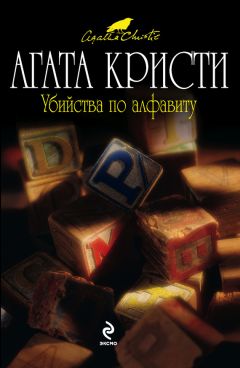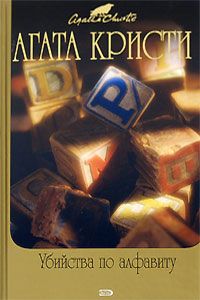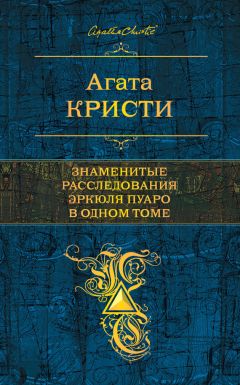Agatha Christie - Английский язык с Агатой Кристи. Убийства по алфавиту
"He has no money left (у него не осталось денег) — he is worn out (он измучен; to wear — носить /одежду/; изнашивать) … his feet lead him of his own accord to the police station (его ноги привели его по его собственной воле в полицейский участок)."
"But even a cornered beast will fight (но даже загнанный в угол зверь будет бороться). Mr. Cust fully believes (мистер Каст полностью верит) that he did the murders (что он совершил эти убийства) but he sticks strongly to his plea of innocence (но он твердо держиться за свое заявление о невиновности; plea — юр. заявление, сделанное в суде одной из сторон). And he holds with desperation to that alibi for the second murder (и он держится с отчаяньем за алиби /на время/ второго убийства). At least that cannot be laid to his door (по крайней мере, его нельзя ему приписать: «его нельзя положить к его двери»)."
morbid [ˈmɔ:bɪd], plea [pli:], desperation [ˌdespǝˈreɪʃ(ǝ)n]
"I do not know why he went to Andover — a morbid desire, I think, to go and look at the place where the crime was committed — the crime he committed though he can remember nothing about it …"
"He has no money left — he is worn out … his feet lead him of his own accord to the police station."
"But even a cornered beast will fight. Mr. Cust fully believes that he did the murders but he sticks strongly to his plea of innocence. And he holds with desperation to that alibi for the second murder. At least that cannot be laid to his door."
"As I say (как я сказал), when I saw him (когда я увидел его), I knew at once (я понял сразу) that he was not the murderer (что он не был убийцей) and that my name meant nothing to him (и что мое имя ничего не значило для него). I knew too (я также понял), that he thought himself the murderer (что он считал себя убийцей)!"
"After he had confessed his guilt to me (после того, как он сознался мне в своей вине; to confess — признавать/ся/; сознаваться), I knew more strongly than ever (я был более, чем когда-либо, уверен) that my own theory was right (что моя собственная теория была правильной)."
"Your theory," said Franklin Clarke (ваша теория), "is absurd (абсурдна)!"
Poirot shook his head (Пуаро покачал головой). "No, Mr. Clarke (нет, мистер Кларк). You were safe enough so long (вы были в достаточной безопасности на протяжении /лишь/ того времени) as no one suspected you (пока никто не подозревал вас). Once you were suspected (как только вас заподозрили) proofs were easy to obtain (доказательства было легко достать; to obtain — получать; добывать)."
"Proofs (доказательства)?"
strongly [ˈstrɔŋlɪ], obtain [ǝbˈteɪn], once [wʌns]
"As I say, when I saw him, I knew at once that he was not the murderer and that my name meant nothing to him. I knew too, that he thought himself the murderer!"
"After he had confessed his guilt to me, I knew more strongly than ever that my own theory was right."
"Your theory," said Franklin Clarke, "is absurd!"
Poirot shook his head. "No, Mr. Clarke. You were safe enough so long as no one suspected you. Once you were suspected proofs were easy to obtain."
"Proofs?"
"Yes, I found the stick (я обнаружил трость) that you used in the Andover and Churston murders (которую вы использовали в эндоверском и черстонском убийствах) in a cupboard at Combeside (в шкафу в Кумсайде). An ordinary stick with a thick knob handle (обычную трость с толстым набалдашником: «с толстой шарообразной ручкой»; knob — узел, нарост /у растений/; набалдашник). A section of wood had been removed (часть дерева была удалена) and melted lead poured in (и внутрь залит расплавленный свинец). Your photograph was picked out from half a dozen others by two people (двое людей опознали вас по фотографии из полудюжины других: «ваша фотография была выбрана из полудюжины других двумя людьми») who saw you leaving the cinema (которые видели вас выходящим из кинотеатра) when you were supposed to be on the racecourse at Doncaster (когда предполагалось, что вы были на ипподроме в Донкастере). You were identified at Bexhill the other day by Milly Higley (вас опознала Милли Хигли на днях в Бексхилле) and a girl from the Scarlet Runner Roadhouse (и девушка из придорожного кафе «Алый бегун»), where you took Betty Barnard to dine on the fatal evening (куда вы водили Бетти обедать в роковой вечер). And finally (и, в конце концов) — most damning of all (и самое гибельное из всего) — you overlooked a most elementary precaution (вы проглядели совершенно элементарную предосторожность)."
knob [nɔb], lead [led], scarlet [ˈskɑ:lɪt]
"Yes, I found the stick that you used in the Andover and Churston murders in a cupboard at Combeside. An ordinary stick with a thick knob handle. A section of wood had been removed and melted lead poured in. Your photograph was picked out from half a dozen others by two people who saw you leaving the cinema when you were supposed to be on the racecourse at Doncaster. You were identified at Bexhill the other day by Milly Higley and a girl from the Scarlet Runner Roadhouse, where you took Betty Barnard to dine on the fatal evening. And finally — most damning of all — you overlooked a most elementary precaution."
"You left a fingerprint on Cust's typewriter (вы оставили отпечатки пальцев на пишущей машинке Каста) — the typewriter that (печатную машинку эту), if you are innocent (если вы невиновны), you could never have handled (вы бы никогда не смогли бы потрогать)."
Clarke sat quite still for a minute (Кларе сидел достаточно тихо с минуту), then he said (затем он сказал): "Rouge (фр. красное), impair (фр. нечетное), manqué (фр. промах)! — you win, M. Poirot (вы выиграли, мсье Пуаро). But it was worth trying (но стоило попытаться)!"
With an incredibly rapid motion (невероятно быстрым движением), he whipped a small automatic from his pocket (он выхватил маленький автоматический /пистолет/ из кармана) and held it to his head (и приставил его к своей голове).
I gave a cry (я вскрикнул: «я издал крик») and involuntarily flinched (и непроизвольно вздрогнул) as I waited for the report (так как я ждал выстрела; report — звенящее эхо /обычно от звука взрыва, выстрела/).
But no report came (но выстрела не последовало; report — звенящее эхо /обычно от звука взрыва, выстрела/) — the hammer clicked harmlessly (курок щелкнул в холостую: «безвредно»; hammer — молот; курок).
Clarke stared at it in astonishment (Кларк посмотрел на его в изумлении) and uttered an oath (и произнес проклятье).
automatic [ˌɔ:tǝˈmætɪk], report [rɪˈpɔ:t], oath [ǝʋƟ]
"You left a fingerprint on Cust's typewriter — the typewriter that, if you are innocent, you could never have handled."
Clarke sat quite still for a minute, then he said: "Rouge, impair, manque! — you win, M. Poirot. But it was worth trying!"
With an incredibly rapid motion, he whipped a small automatic from his pocket and held it to his head.
I gave a cry and involuntarily flinched as I waited for the report.
But no report came — the hammer clicked harmlessly.
Clarke stared at it in astonishment and uttered an oath.
"No, Mr. Clarke," said Poirot (нет, мистер Кларк). "You may have noticed (вы, вероятно, заметили) I had a new manservant today (что у меня сегодня новый слуга) — a friend of mine (мой друг) — an expert sneak thief (профессиональный вор; sneak thief — вор, который крадет легко доступные вещи, не используя грубую силу и не проникая в помещения путем взлома; to sneak — красться, подкрадываться). He removed your pistol from your pocket (он вытащил пистолет из вашего кармана), unloaded it (разрядил его), and returned it (и вернул его) all without your being aware of the fact (так, что вы не заметили: «все без вашего осознания этого факта»)."




